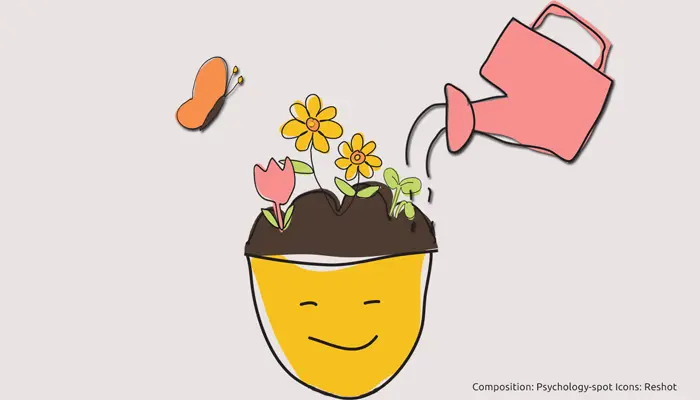
Personal Growth is a journey of inner discovery, a journey that lasts a lifetime because it is not a destination but a path. Throughout this journey we are acquiring different psychological tools that allow us to observe our mind, understand ourselves better and learn to flow with the changes in life.
This growth path is unique and there are different ways to travel it. There are those who resort to coaching sessions, others prefer to sign up for a personal development course or even follow spiritual teachers. However, regardless of the path chosen, to achieve a transcendental inner change we all go through a series of stages of Personal Growth that underpin that transformation. Knowing them will allow us to understand where we are on the road.
The phases of Personal Growth that promote a liberating change
1. Self-awareness
Many people live without getting to know themselves. They are true strangers to themselves. They choose the path of denial, ignorance and avoidance of problems, inner conflicts and weaknesses. As a result, it is not strange that they end up developing self-destructive behaviors, that they feel stuck in their lives or that they fail to be happy.
Therefore, the first step on the path of personal growth is to look inward. Self-knowledge is vital to realize our faults and weaknesses, as well as to feel proud of our achievements. It allows us to discover who we really are in order to develop a deep understanding of ourselves and the life we lead.
Only then can we begin to face our problems, instead of ignoring or avoiding them, and take note of our strengths and potential to become the person we want to be and build the life we want. Self-knowledge courses can be a good starting point to discover our “personal capital” and appropriate the psychological tools we need.
2. Acceptance of the shadows
Acceptance is usually one of the biggest challenges on the path of personal growth because it is difficult for us to recognize and accept our shadows, those parts of ourselves that we do not like or that we even reject. However, self-knowledge must go hand in hand with acceptance.
If we try to change without accepting ourselves, we will not be able to overcome guilt or shame and we will not feel completely satisfied or happy with the results, even if we have reached our goals.
Acceptance is, in a way, similar to forgiveness because it does not imply that we like some of our characteristics or justify our bad decisions, but only to let go of the associated anger, contempt or disgust. It is about accepting who we are, without judging ourselves, with neutrality and love, and then undertaking the changes that allow us to grow.
This kind of acceptance leads to a deep sense of self-love and prevents us from wasting valuable energy fighting ourselves or punishing ourselves for who we are or what we have done, to avoid getting stuck in those negative feelings.
3. Take responsibility for our well-being
“Living means taking responsibility for finding the right answer to the problems it raises,” wrote Viktor Frankl. Growing up implies taking charge of our lives because we understand that our happiness and psychological well-being depend to a great extent on the attitude we assume towards the world.
At this stage of personal growth we finally understand that although we cannot choose circumstances, we can decide how to respond to them. However, understanding that we are the most responsible for our lives and our happiness can be scary because it means stopping looking for scapegoats to blame for our dissatisfactions and failures.
However, when we stop wasting energy on the things we cannot change we can focus on those that really make a difference. When we take responsibility for our life, making our own decisions, we stop living reactively to start living proactively.
4. Planning and implementation
Knowing and accepting yourself is of little use if it does not lead to behavioral and attitudinal change. However, most people tend to get stuck in this phase of personal development. They know what to do, but they do not do it, usually due to lack of discipline and motivation or because they do not have a clear plan to follow.
As a result, they end up reverting to their old habits. Old thought patterns regain strength and our mind can sabotage us by smashing all the work done to reactivate the ghost of old fears, insecurities and guilt.
That is why it is important that every journey of personal growth also has an external projection and is accompanied by concrete plans that allow us to take the necessary steps to build the life we want. Channeling that inner change into actions will allow us to enhance self-efficacy and reaffirm ourselves on our way.
5. Find the personal meaning
In this stage of personal growth we learn to live with purpose and intention. We live more consciously, we accept ourselves and take responsibility for our decisions but, above all, we find the purpose that gives meaning to our existence.
It is about finding what Viktor Frankl called the “will to make sense”, which implies being able to discern the essential from the superfluous, be clear about our values and set significant goals for the future so as not to let ourselves be defeated by circumstances, no matter how harsh they may be.
Of course, this phase of personal growth is not the end point because we never stop growing and learning about ourselves, but it implies that we have reached a point in our lives where we have developed patience, perseverance, wisdom, courage, humility and strength necessary to follow our path, the one we have chosen ourselves.



